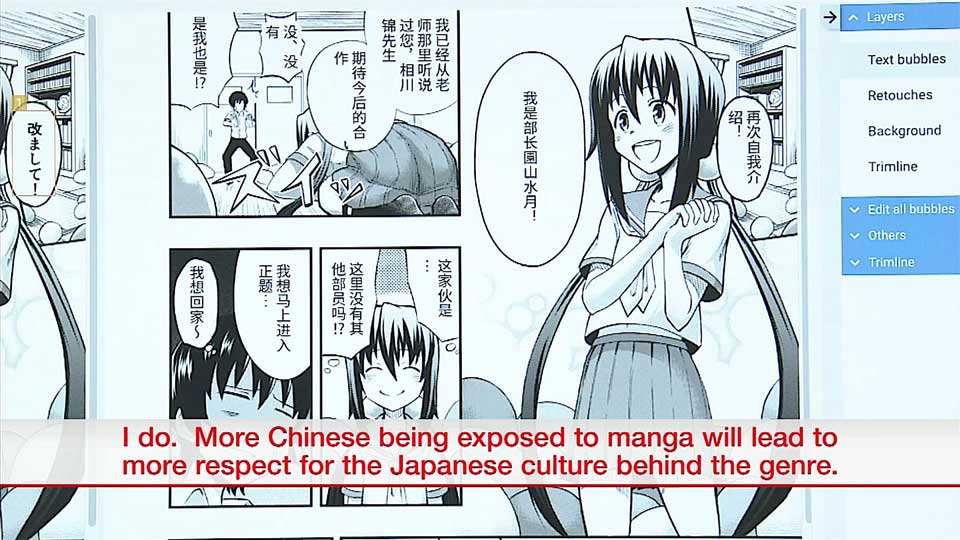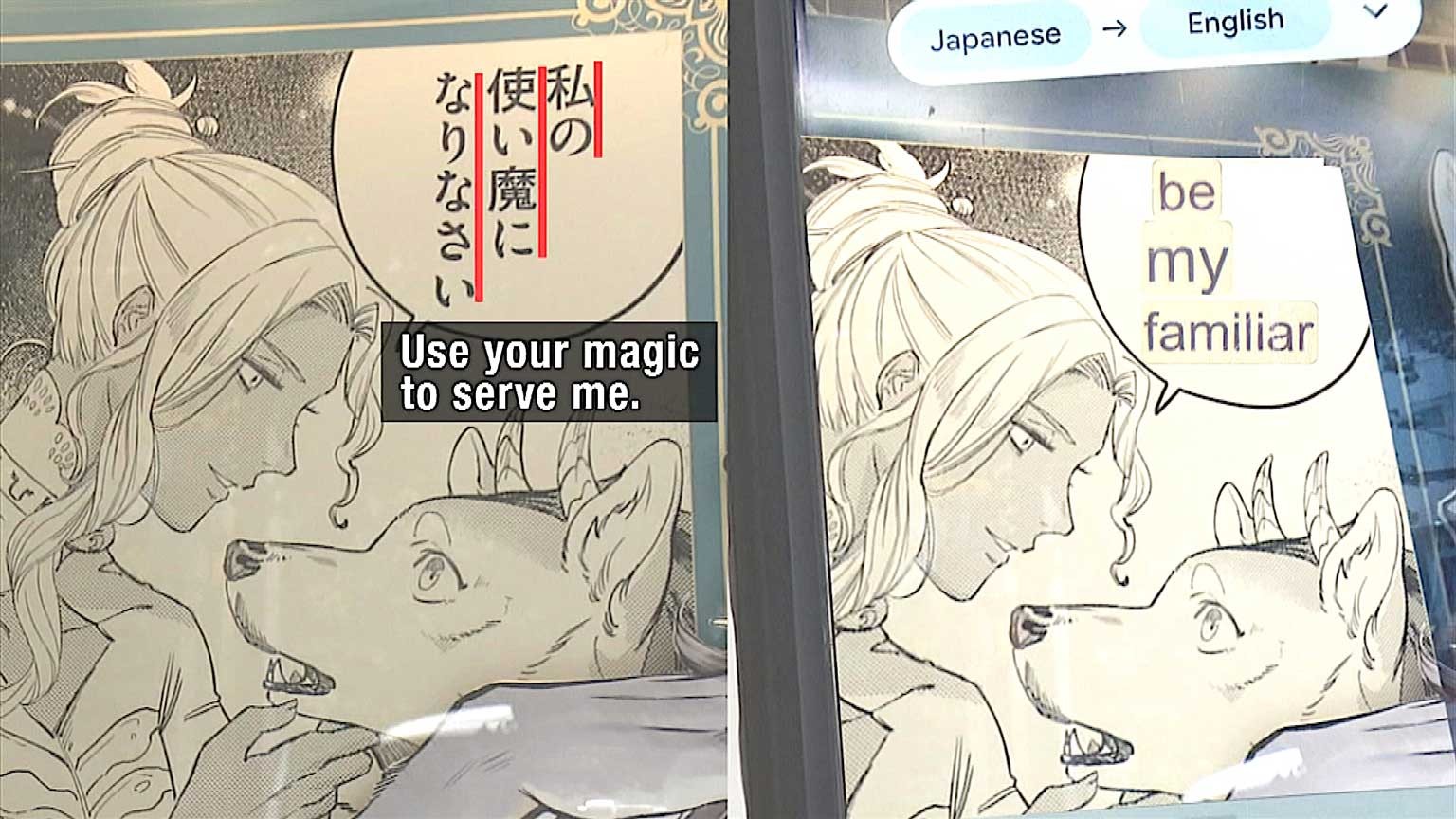Unofficial translations are estimated to cost Japanese publishers as much as 5 billion dollars a year, and also pick the pockets of the manga artists who survive on their royalties. Pirates take advantage of the time lag in translating works to rush their versions online before the licensed ones can be released.
The demand for translations now far outstrips the supply. At the New York branch of Japanese bookstore Kinokuniya, manga fans scour the shelves for the latest additions to their collections.
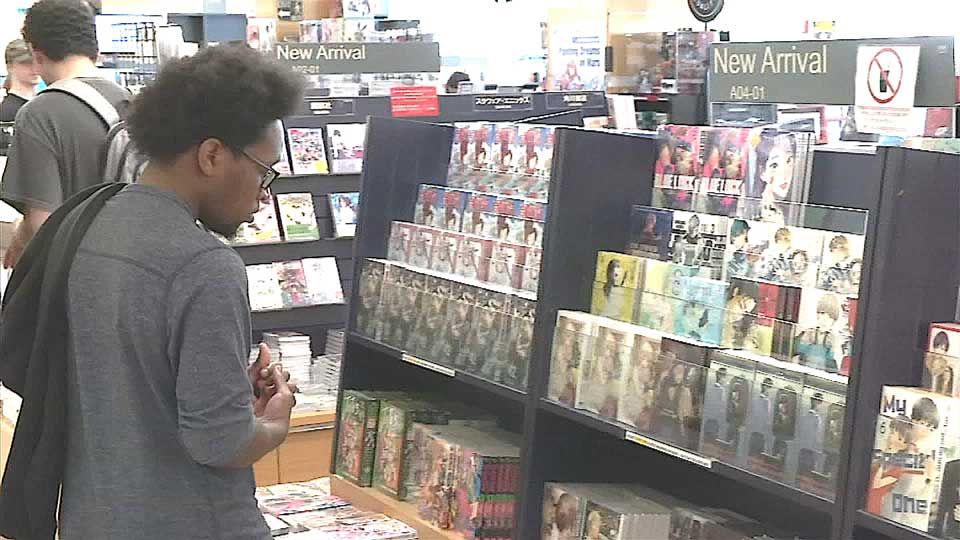
But only a fraction of Japanese manga titles are available in translation. The store has a sign informing customers which manga have yet to be released in English.
Nagai Yasunobu, a manager at Kinokuniya New York, says manga's popularity is surging. If this trend continues, he says that translating more work will be crucial.
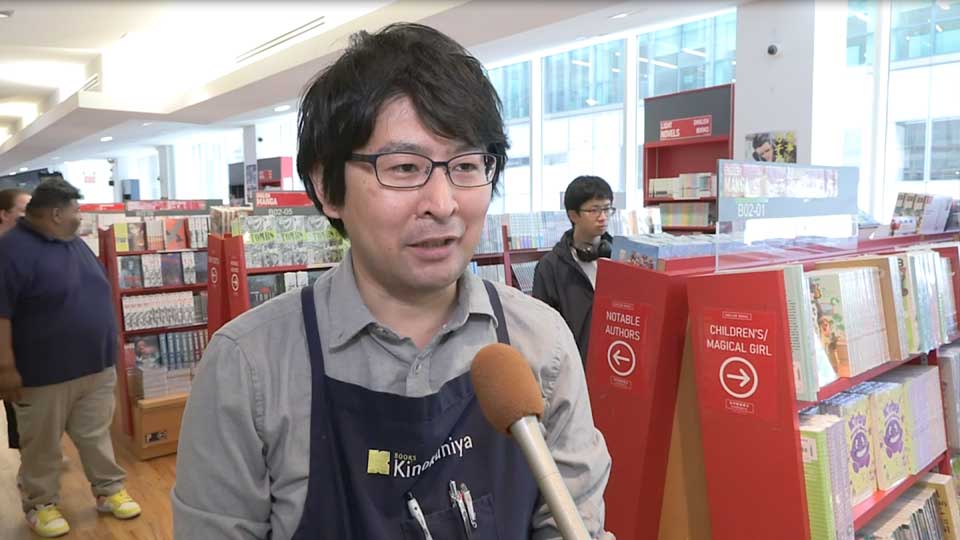
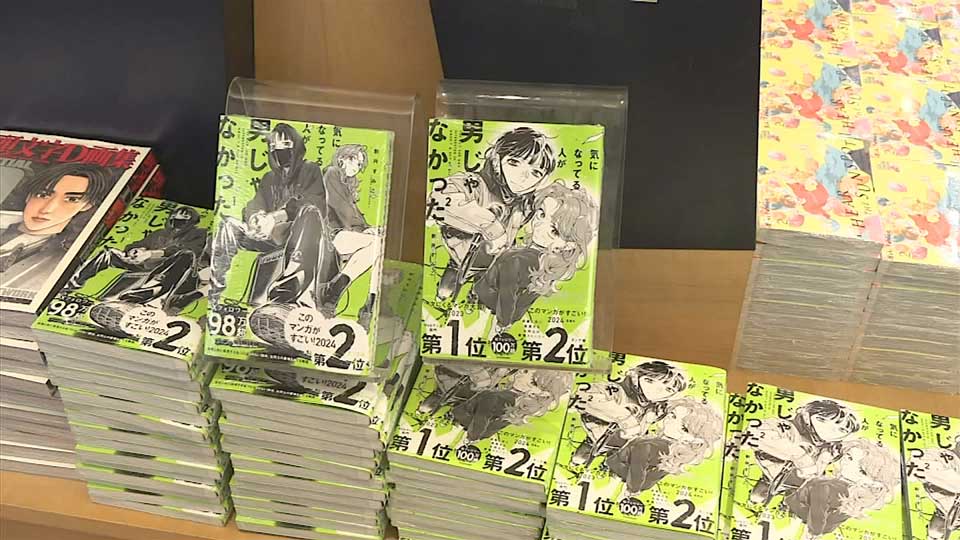
AI to the rescue
Mantra, a Tokyo-based startup launched in 2020, is hoping to be a game-changer. It has developed a sophisticated AI system that specializes in multi-language manga translations.
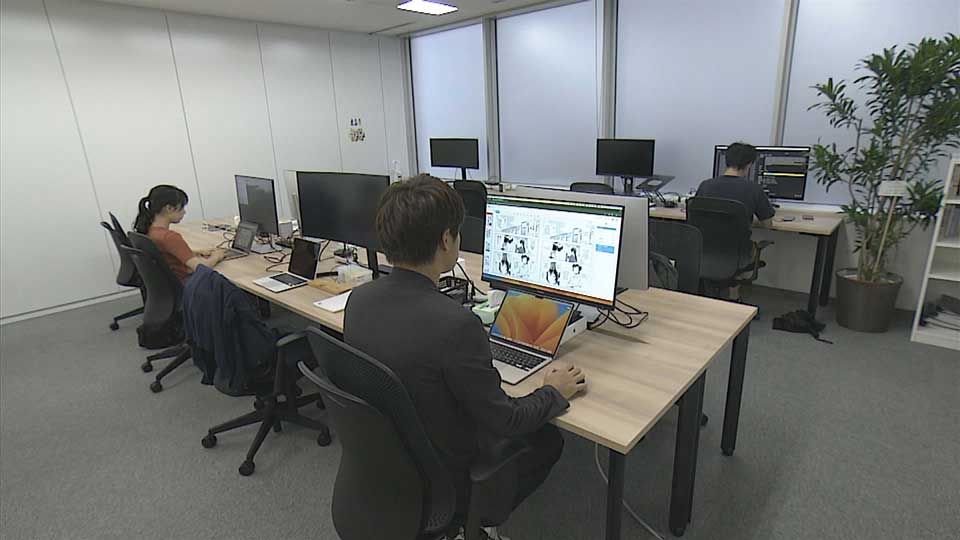
The company is racing to help publishers get out their comics faster to keep up with international demand. Its engine scans the digital version of the original, removes the Japanese from speech bubbles, and inputs the translated text in a matter of minutes. All that's left is fine-tuning by designers and editors.
"We sometimes have to slightly adjust word layout to fit into the bubble, so it's easier to read," a company layout designer says.
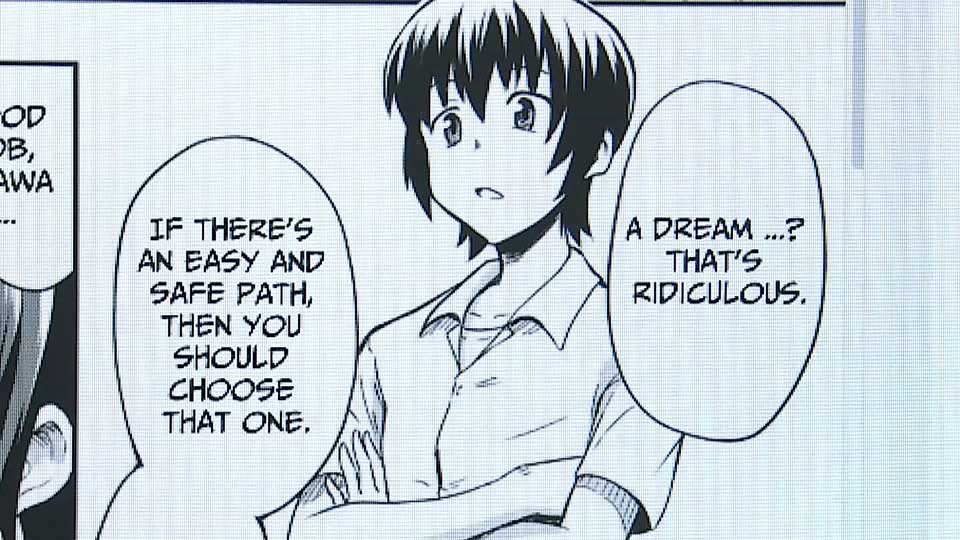
With this system, an entire manga that typically takes a month or more to translate can be done in just two days.
Mantra's co-founder and CEO Ishiwatari Shonosuke hopes to take its capabilities even further.
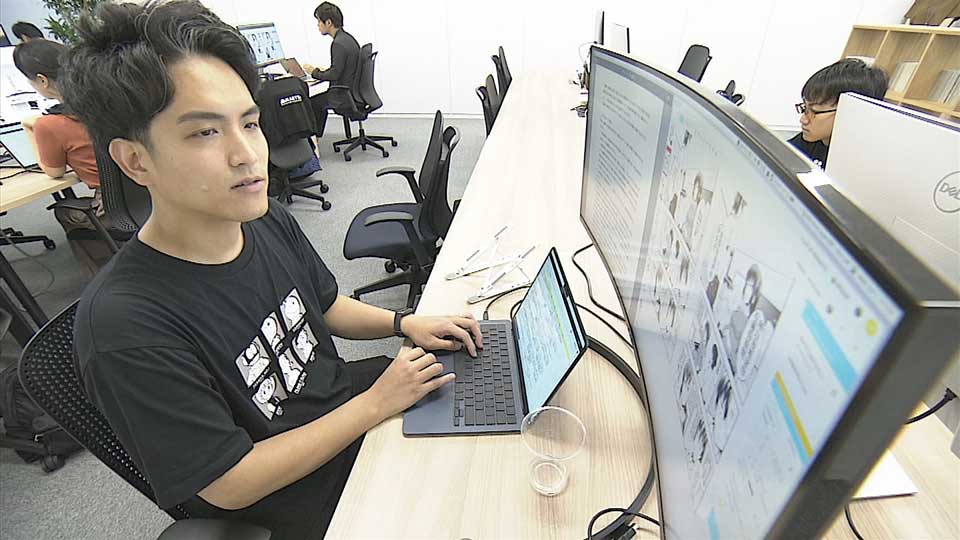
He says, "In the future, we're hoping to get manga in multiple languages into the readers' hands in real time. That's ultimately what we're after."
For now, the AI tool is still learning. It sometimes struggles with identifying and adding subject words such as "I," "you," "he" and "she," which are commonly dropped in the original Japanese.
Japan's best manga is known for its unique phrasing and nuanced language, which can make translation challenging. Mantra employs human translators to ensure accuracy.
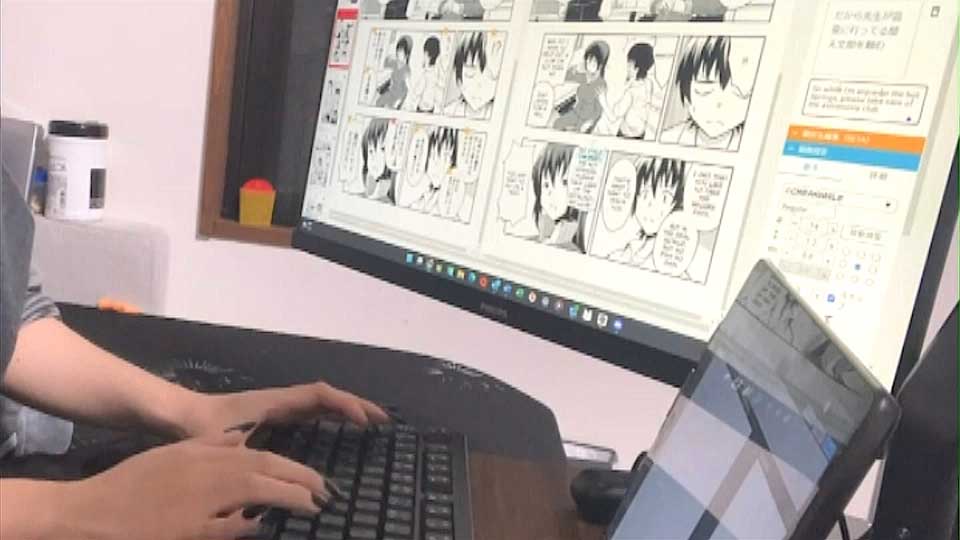
Fans seek manga in their native tongues
Tokyo's Akihabara is the hub of the manga and anime world. Many overseas visitors go there hoping to find books in their native tongue, but often have to resort to using their smartphones' AI function to translate.
A young fan visiting from the United States says he often buys Japanese editions, and reads them with his smartphone. But he believes much is lost that way.
He says he would better appreciate the stories if he could read English versions of them, instead of his phone's "pretty poor translation."
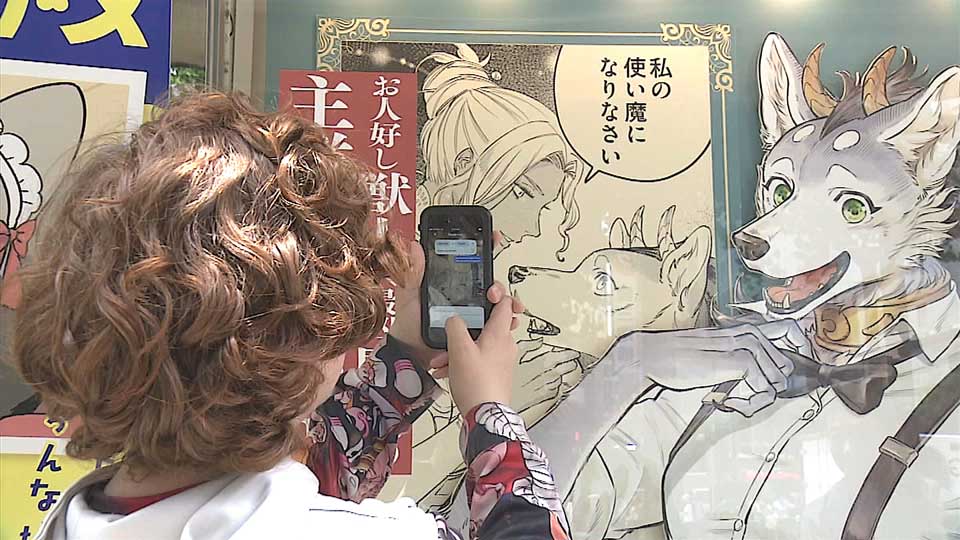
It's not just English speakers who are frustrated. One young manga fan visiting from Taiwan says only the most famous works are translated into Mandarin. He says he wishes more niche content were available in his language, too.
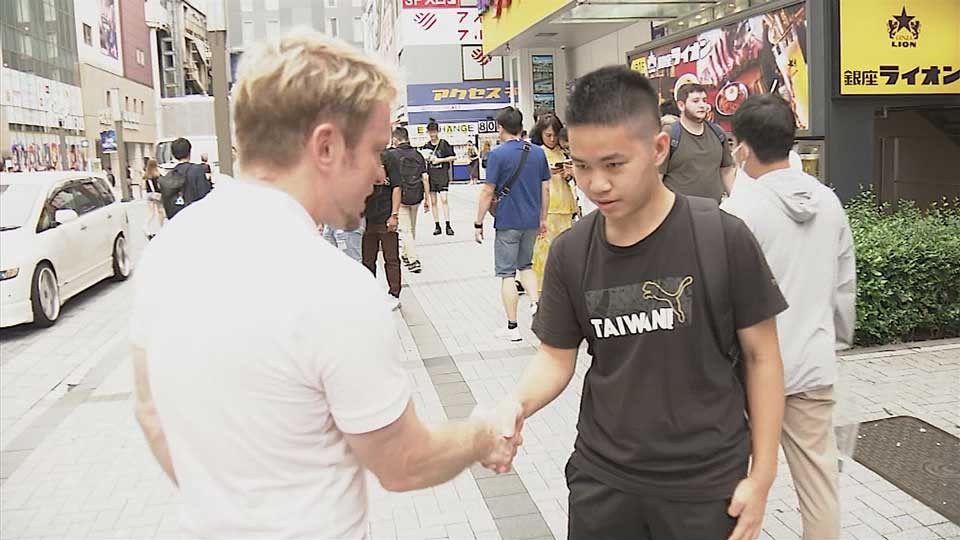
Mantra's Ishiwatari is from a cross-cultural background himself — born to a Japanese father and Chinese mother — so he believes translating more manga into Mandarin is not just about profit. He says that exposing more Chinese people to manga will lead to more respect for the Japanese culture behind the genre, bringing his parents' two countries closer.
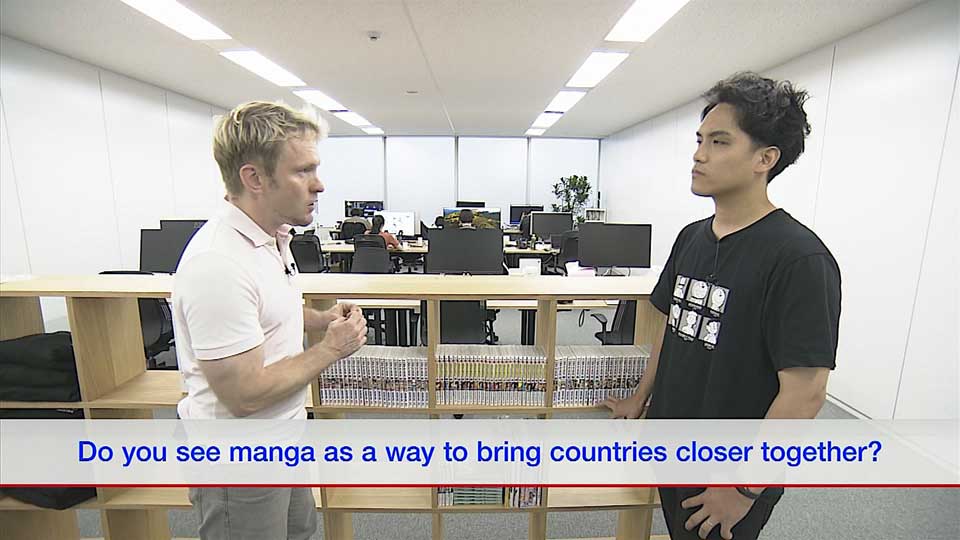
'As many genuine editions as quickly as possible'
Expediting translations would help tackle the piracy problem, experts say.
Hirai Yuki, an attorney at Sakurazaka Law Offices who has worked on piracy cases, says that swiftly getting official versions online in many languages would take direct aim at the illicit sites.
He says readers will always seek whatever is available, so publishers "need to suppress this by releasing as many genuine editions as quickly as possible."
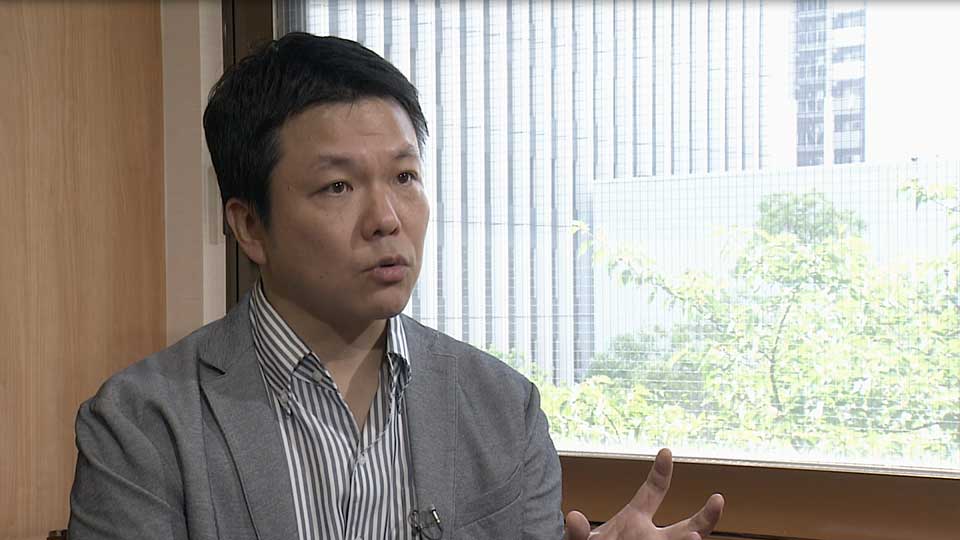
Mantra's system can now translate manga into 18 languages. Other companies, including publishers themselves, are also looking into ways AI can accelerate the translation process.
Cost is another major reason that some people turn to pirated versions, as they try to keep up with continuously released content. As AI reduces the manpower costs required for translation, many consumers are hoping it might help bring down manga prices.
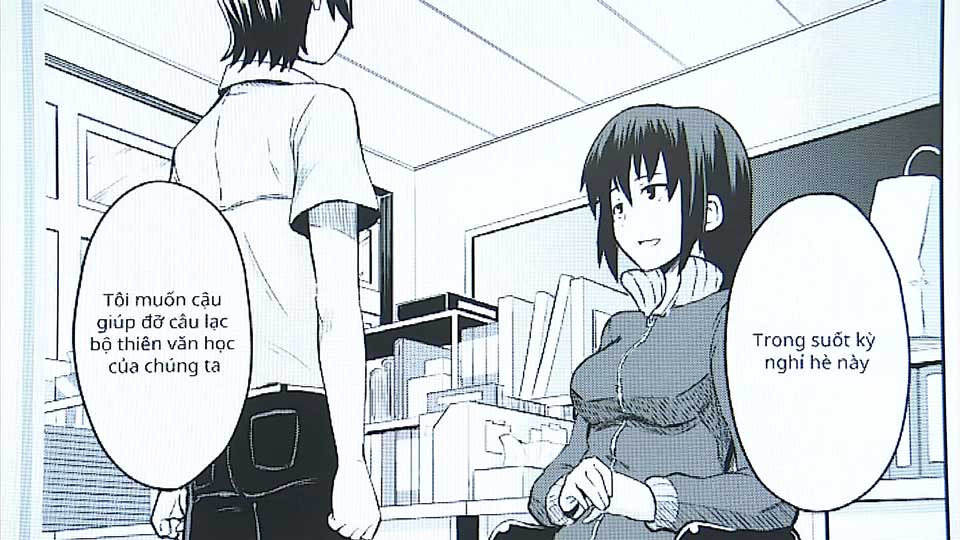
Translators 'have reservations' about AI
The Japanese government is among those hoping that manga's popularity continues. Its so-called "Cool Japan" campaign to promote the country's soft power abroad involves boosting exports of manga, anime and other entertainment to generate about 125 billion dollars by 2033.
But not everyone believes AI is ready to assume a pivotal role in the manga boom. Kamimura Saki, president of the Japan Association of Translators, says he doubts AI is up to the task of properly capturing the unique attributes of each work.
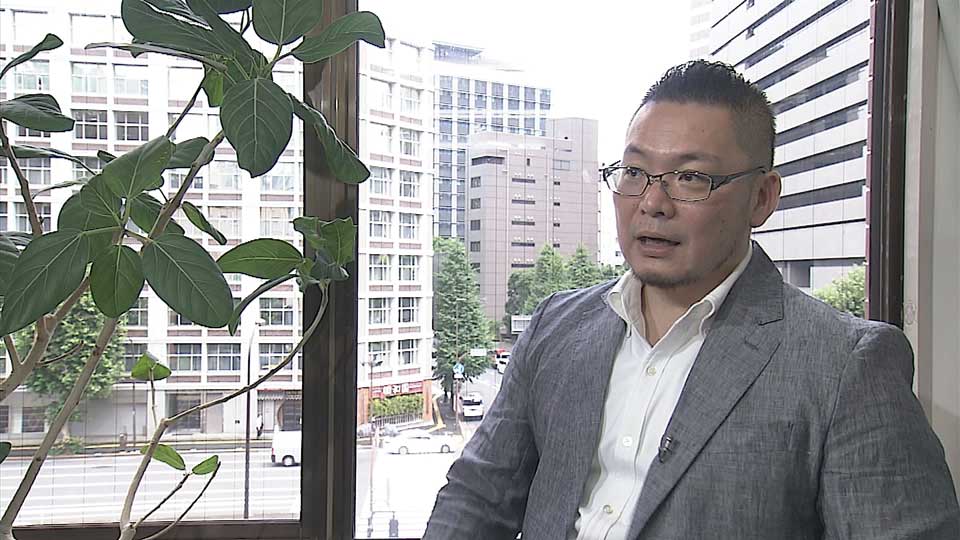
Kamimura says his organization is not necessarily opposed to using AI at all, but he says it has its limits.
"We have reservations about whether it can ensure quality. We've observed how piracy sites all use AI in their translations. If Japan begins doing the same, we wonder how publishers can maintain a level of quality above the piracy sites," he says.
'Partnership between human and machine'
Attorney Hirai envisions a future in which translators use the new technology as a kind of co-pilot.
He says, "It would be ideal if translators use AI as a tool – a partnership between human and machine. That way the fans could have access to not just famous titles, but niche ones, too."
Creators would have a smooth pipeline to keep delivering fresh content. Hirai believes it is vital "to create such an ecosystem – a win-win for all. What a wonderful world that would be."
